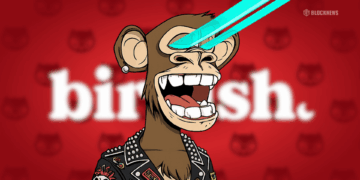- Mark Longo, the owner of Peanut the Squirrel, has filed a lawsuit against Binance for allegedly exploiting the squirrel’s image and story without his consent.
- Peanut the Squirrel became a viral phenomenon after Longo’s dispute with the New York Department of Environmental Conservation, leading to the creation of a meme coin ecosystem tied to the squirrel’s story.
- The lawsuit is part of a broader trend of creators fighting against the exploitation of their work, as the boundaries between creativity, ownership, and profit become increasingly blurred in the age of internet monetization.
The owner of Peanut the Squirrel is suing Binance, the world’s largest crypto exchange, alleging that they have profited from the brand image of the animal without his permission. This lawsuit has caused a stir in the crypto community and brought up unresolved issues about intellectual property rights in the digital age.
The Alleged Infringement
Mark Longo, the creator of Peanut the Squirrel, has sparked a controversy in the crypto community by filing a lawsuit against Binance. Longo, also known as Squirrel_Dad, accused the exchange of exploiting the image and story of Peanut without his consent. This lawsuit has come amidst turmoil in the meme coin ecosystem inspired by Peanut, where Longo has been a controversial figure.
Peanut the Squirrel’s Journey from Virality to Controversy
Peanut the Squirrel became a viral sensation during a dispute between Longo and the New York’s Department of Environmental Conservation (NYSDEC). The department seized Peanut and a raccoon from Longo’s care in a controversial raid, which resulted in the death of the squirrel. This sparked a wave of outrage on social media and even garnered the attention of Elon Musk. The incident turned Peanut into a symbol, inspiring meme coin ecosystems tied to the squirrel’s story.
The Launch and Fall of the PNUT Token
Longo launched the Justice for Peanut (JFP) token as a way to reclaim Peanut’s narrative, branding it as the only authentic PNUT coin. The token was a massive success initially, reaching a market capitalization of $116 million. However, the token’s value has since plummeted by more than 95%, with critics accusing Longo of using the controversy for personal gain.

The Debate Over Meme Ownership and Copyright
The lawsuit against Binance has further fueled the debate over intellectual property rights in the digital age. As memes become monetized, the boundaries between creativity, ownership, and profit are getting blurred. This has led to a wave of creators trying to enforce their intellectual property rights. For instance, Philip Banks, the artist behind the “Just a Chill Guy” meme, recently announced plans to enforce copyright on his character.
Conclusion
This case highlights the growing concerns around intellectual property rights in the rapidly evolving digital world. As the internet continues to blur the lines between creation and ownership, it’s clear that more thought needs to be given to how to protect creators’ rights in the digital age.














